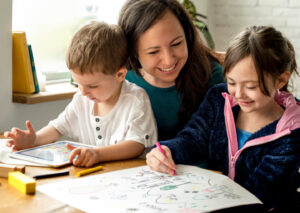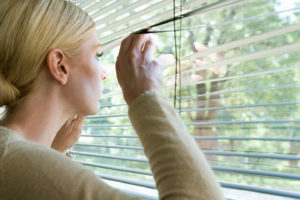Homeschooling now ‘America’s fastest-growing form of education,’ Washington Post concludes
Homeschooling’s burgeoning growth has caught the attention of mainstream media, as the Washington Post recently estimated between 1.9 million and 2.7 million children now homeschool in the United…

Homeschooling’s burgeoning growth has caught the attention of mainstream media, as the Washington Post recently estimated between 1.9 million and 2.7 million children now homeschool in the United States.
“The growth demonstrates home schooling’s arrival as a mainstay of the American educational system, with its impact — on society, on public schools and, above all, on hundreds of thousands of children now learning outside a conventional academic setting — only beginning to be felt,” explained the article’s authors.
The media outlet adopted a tone home educators may well find condescending, calling it “a largely unregulated practice once confined to the ideological fringe.”
But even its detractors cannot deny its explosive progress crossing “every measurable line of politics, geography and demographics.” It’s outpacing enrollment in both private and public schools.
“In states with comparable enrollment figures, the number of home-schooled students increased 51 percent over the past six school years, far outpacing the 7 percent growth in private school enrollment,” authors wrote. “Public school enrollment dropped 4 percent in those states over the same period, a decline partly attributable to home schooling.”
More homeschool regulations?
The Post called for more regulations on homeschooling in its article, arguing many states provide “weak” supervision in terms of official evaluations.
“Home-schooled kids don’t have to submit to any form of testing for academic progress in most states, and even states that require assessments often offer loopholes,” authors wrote.
“Many of America’s new home-schooled children have entered a world where no government official will ever check on what, or how well, they are being taught.”
The Post also interviewed Elizabeth Bartholet, a Harvard Law School professor who gained notoriety in the homeschool community after calling for a ban on it in a 2020 Arizona Law Review article.
The Home School Legal Defense Association (HSLDA) provided several rebuttals of Bartholet’s criticisms, and she later backtracked and said she did not favor a “ban,” but supported what she called “reasonable” regulations.
Such stances inevitably clash with parental rights, said the nonprofit’s president emeritus, J. Michael Smith.
“Parents must be given the say-so over the raising and educating of children because they have proven themselves trustworthy,” he wrote in a response to Bartholet’s article. “The alternative is trusting the state to know each child individually and to give the love and support that a parent gives. It is not possible.”
The Post’s article expressed surprise over homeschooling’s expansion, given what it called “the immense logistical challenges” for parents to supervise their children’s education.
It quoted Nat Malkus, deputy director of education policy at the American Enterprise Institute, who called homeschooling “a fundamental change of life.”
“The personal costs to home schooling are more than just tuition,” he said. “They are a restructuring of the way your family works.”
‘No correlation’ between ‘school district quality’ and homeschool growth?
The Post also took pains to defend the public school system, arguing the growth in homeschooling could not be tied to dissatisfaction with school districts’ academic performance.
“Despite claims that the home-schooling boom is a result of failing public schools, The Post found no correlation between school district quality, as measured by standardized test scores, and home-schooling growth,” authors wrote. “In fact, high-scoring districts had some of the biggest spikes in home schooling early in the pandemic, though by the fall of 2022 increases were similar regardless of school performance.”
However, the Post’s own sources expressed dissatisfaction with public schools, even in what The Post considered high-quality districts.
For example, California mom Stephanie Peterson withdrew her children from Capistrano Unified, which outperformed 87% of other U.S. school districts on standardized test scores.
“I think it’s an excellent school district,” she said, “if you are a kid who doesn’t have any special needs.”
The school had not accommodated her daughter’s severe peanut allergy or provided sufficient services for autism, Peterson said. Despite all this, Peterson described herself as “very pro-public education.”
Other reasons parents chose to homeschool included bullying, concerns over school shootings, and general quality of the school’s environment, which The Post hastened to excuse as “intractable problems, some of which school officials have limited power to solve.”
“Many [parents] also said they feared the intrusion of politics into public education, a worry unlikely to recede amid arguments over how sexual identity, Black history and other subjects are handled in the classroom,” authors wrote.
Government funding of homeschoolers?
The Post also frets over the growing school choice movement, including the introduction of scholarship or savings account programs in several states.
“Thanks in part to such policies, home schooling will increasingly compete for tax dollars with the public education system,” authors wrote.
However, The Post ignores the stated commitment of many homeschoolers to eschew public funding entirely.
“The decision to mix government money with private homeschooling remains extremely rare,” wrote HSLDA’s Dave Dentel in a report on a Harvard University symposium covering emerging school models. “In most states, the law simply doesn’t allow it. And panelists agreed that accepting government funds for any activity invites additional government regulation.”
The Post also argues public schools are “the heart of the community” in which they’re located, since they often host football games, concerts, and other events to draw crowds.
The article’s authors admit homeschool families often recreate these communal functions with microschools or co-ops.
But they warn “such groups often cluster by shared ideology; home education’s rise has coincided with the fracturing of a nation unable to agree on the results of the last presidential election or how to fight a pandemic that has killed more than 1.1 million people.”
However, such arguments ignore the increasingly militant secular ideology that characterizes the public school system.
Former U.S. Attorney General Bill Barr has sounded the alarm on this philosophy, disputing the idea of successfully segregating education from faith and religion.
“Since the 1960s, government-run schools have become increasingly hostile and subversive to traditional religious values – a stumbling block to the ability of parents to pass on their faith and frame the moral character of their children,” he said in a recent address to award-winning Christian educators.
Unless that changes, many analysts continue to predict the continual rise of homeschooling and other alternative educational models – such as Corey McKeown’s Christian homeschool co-op in Hillsborough County, Florida.
When McKeown joined the co-op in 2011, it had about 40 children. Now she directs the co-op, which has increased to nearly 600 students.
“Home-schoolers in Hillsborough County do not lack for anything,” she said. “We have come such a long way.”



